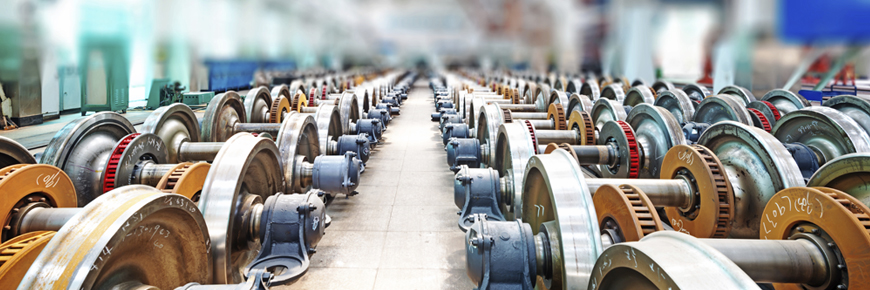
Manufacturers make a significant contribution to employment levels and UK exports, meaning as a nation, we are less reliant on goods produced overseas.
They play a vital role in Britain’s economy, with the importance of the UK manufacturing sector recognised by many influential figures and bodies including: politicians, trade unions, and employers’ groups such as the Confederation of British Industry.
A difficult last few decades
The makeup of Britain’s economy has changed significantly in the past 30 years. In 1985, manufacturing made up a quarter of the UK’s GDP and in 1997 it made up 18% of UK output. Today, it represents just a tenth.
In the 1980s, a rise in overseas competition and increasing privatisation resulted in a steady fall in manufacturing output. In the 1990s, the downward trend continued as successive governments focussed on the UK’s burgeoning service sector.
Meanwhile, the service sector – including the likes of banking, accountancy and the legal profession – has grown to represent roughly 80% of the economy.
Britain open for business, but output still remains low
The Chancellor of the Exchequer, George Osborne, used his 2011 Budget to announce extra support for manufacturers.
As part of the coalition government’s (2010-2015) plan to help Britain emerge from the recession, Osborne promised more attractive conditions for foreign investment in UK manufacturing, to deliver the most competitive tax system in the G20 group of advanced economies, and to bring about tax breaks for research and development.
Despite the government’s efforts, manufacturing output remains below its pre-recession peak.
The sector’s contribution to the UK’s GDP remains stuck at the 10% level – as it has been since the recession started in 2009. The Office for National Statistics recently confirmed that output had fallen between August 2014 and August 2015.
Falling investment in UK regions
In 2014, a report from advisory firm Ernst & Young found that while the UK received 20% of all foreign direct investment into the EU, it only accounted for 12% of foreign-backed manufacturing projects.
Manufacturers are currently facing big challenges. An economic slowdown in the Far East has resulted in lower global demand for goods produced in the UK, while Chinese manufacturers are selling produce at much lower prices on the international markets. Britain’s steel producers are already bearing the brunt of this with a number of plants being closed this autumn and thousands of jobs lost.
A recent study from manufacturers’ organisation EEF has found that, while producers in theSouth East and London are especially bullish when it comes to forecasts of output and employment levels; their optimism is not shared throughout the rest of the UK.
The research found, for example, that domestic demand was particularly depressed among manufacturers near the Scottish-English border. This is largely due to the fact that many of these firms are suppliers for Scotland’s oil and gas industry, which has been severely hit by the lower oil price over the past 12 months. The EEF also found that general business confidence is highest in London and lowest in the North West of England.
The Northern Powerhouse
The government’s latest bid to rebalance the economy and support manufacturing involves the creation of the Northern Powerhouse. For the likes of Manchester, Leeds, and Sheffield this means:
- Boosting infrastructure links; for example, with the extension of the HS2 rail project
- Making those aforementioned areas more attractive to international investment
- Funding new research and development centres
For now though, international trading conditions mean that the outlook for Britain’s manufacturers is as challenging as ever.
Takeaways:
Despite efforts by the government to create the right conditions for manufacturers to grow, the outlook still isn’t a favourable one. However, given the right funding options, manufacturers are able to ride out the economic storm and prosper in a challenging environment.
- With the creation of the Northern Powerhouse, the UK government is attempting to rebalance the economy away from financial services and the South East
- A report published by Ernst & Young’s Item Club suggests prospects for growth in the UK are better than in many other countries
- Businesses need access to dynamic funding solutions that enable them to react quickly to changing market conditions
- The right credit partner can help businesses identify a credit facility that is tailored to their circumstances and needs – and that will help negate potential economic challenges in the future
Take a look at our latest infographic: Future sentiment - what sets manufacturers apart?







